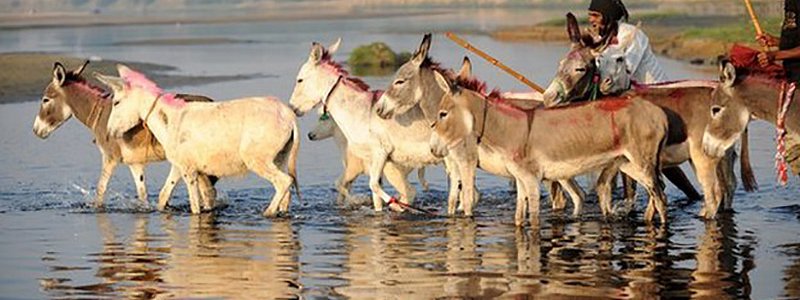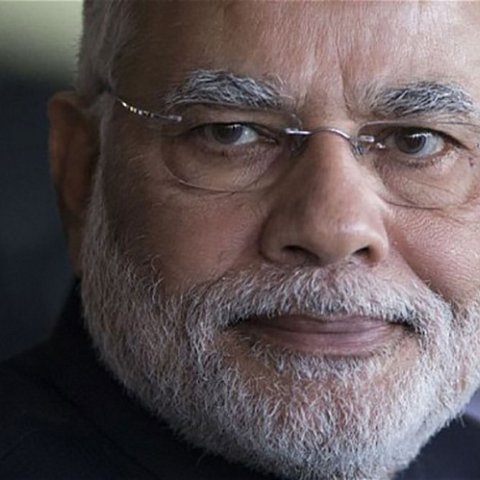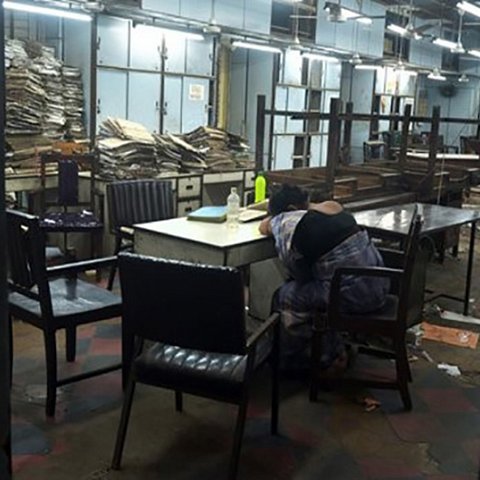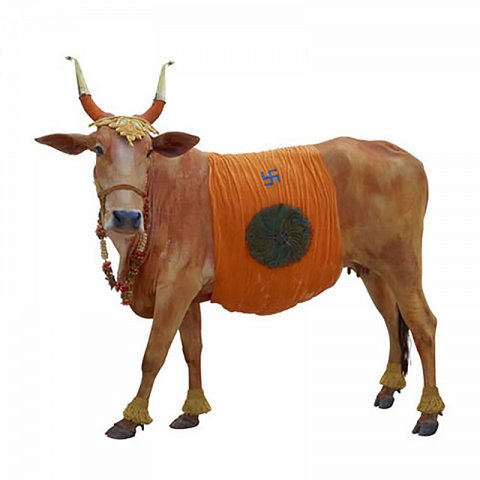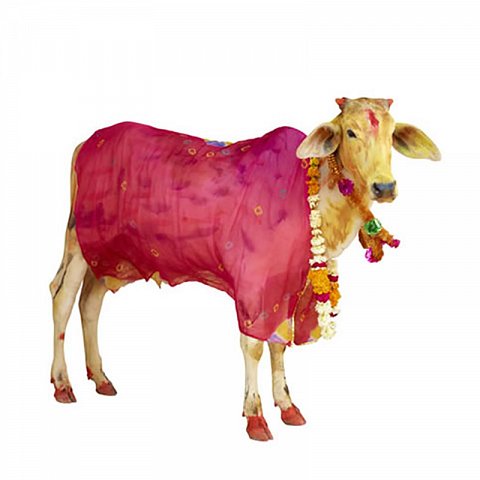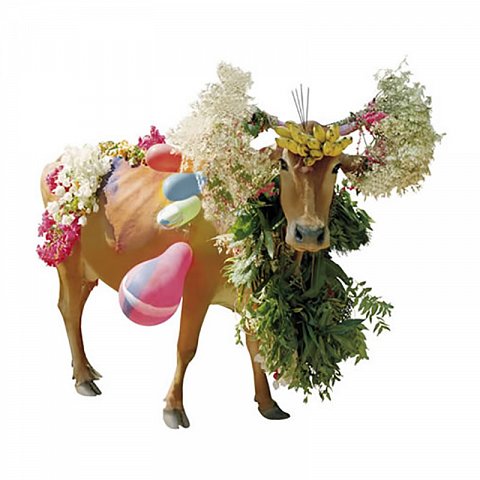No time off for the Holy Cow
He had had a good run, but it had to come to an end, sooner or later. Later, as it happens - very much later, in fact.
The excellent Mr. Verma, an electrical engineer, was given the boot for failing to turn up for work, so you are probably imagining a prompt and efficient management who wanted to stamp out absenteeism as soon as it raised its ugly head. Well, not exactly. Mr Verma joined the government service in 1980, and had risen to the rank of executive engineer by 1990. It was then – perhaps overwhelmed by his meteoric rise - that he decided to go on leave. He has been there ever since, and has been paid every week during the intervening twenty-five years for doing absolutely nothing whatsoever. Not sick, not dead, just not there. For a quarter of a century. Shabash!
It wasn’t long - well, only a couple of years - before his absence was noted and an inquiry was set up in 1992, but he ‘refused to co-operate’ a government minister said. Formal proceedings to dismiss him were not begun until 2007. These continued for a further seven years and - hey presto! - he has just lost his job. Whether his fellow workers (well, not exactly workers, as he didn’t do any work, but you know what I mean) had a whip-round and presented him with a signed card wishing him well in his ‘retirement’ is not known.
Absenteeism is a pervasive problem in government-run offices in India - a report in 2012 labelled India's government machinery the worst in Asia – and schools have also faced problems, with teachers failing to turn up for work in huge numbers. Last August, a state school in Madhya Pradesh sacked a teacher who had been absent for 23 years of her 24-year career – if, indeed, ‘career’ is the appropriate word here. (Is she related to A.K. Varma? I think we should be told – Ed.)
The arterial sclerosis in the Indian body politic is legendary and the byzantine complexity of her government departments and sloth-like speed of those who administer them would have driven a less patient population than the subcontinent’s to mass murder long since. These shortcomings (like many of India’s current woes) are habitually blamed on the British Raj, but while it is true that the British administration, being primarily a Victorian military affair, was snarled up by cumbersome red tape and tedious protocol, that is not the whole story. What those who blame the British overlook is that despite its convoluted bureaucratic procedures, the Raj got things done. And pretty efficiently – just look at the public works, communications, railways, geographical surveys etc. that were achieved in often very difficult conditions. For all their failings, what Dickens mocked as ‘the circumlocution offices’ yielded lasting and often remarkable results.
No, there are at least two other reasons for India’s bureaucratic constipation. One is the fact that for many hundred years before the little islanders had even heard of the place, India’s brahmin intelligentsia had been creating systems to understand and manage the universe - philosophical, mathematical, ritualistic, medicinal - of a quite extraordinary complexity that has never been surpassed. They also organised society through the most minutely orchestrated division and sub-division of labour – what we call the caste system – the human mind has ever devised. So Indians have a gene for complex organisation that will not be deterred.
The second reason for the sluggish centralisation of the bureaucratic system is far more recent. In 1947, the new prime-minister, who was a Fabian Socialist and high-caste brahmin called Jawaharlal Nehru, decided that the communist USSR, with its overarching and centrally-run administration, would be the model for the newly independent Indian nation. Uncle Joe Stalin’s Five Year Plans became the template for India’s development programmes and the shelves, desks, in-trays, fans, pencil-sharpeners and tea urns of a mighty government machine were creakingly wheeled into place. With them came the perk of a lifetime job, irrespective of productivity, efficiency or compassion. A torpid and autocratic Indian version of Kafka’s Castle was erected, and there was no Ariadne’s thread supplied to guide the innocent thorough its labrynthine, sunless corridors and hidden dusty offices. ‘Abandon hope all ye who enter here’ could have been the motto over the main gate. Behind it sat rows and rows of babus, their feet up on the desk while they drank endless cups of chai and gazed with bored and impotent bemusement at the mountains of unattended papers remorselessly piling up around them. And so it has remained. All other Indians – businessmen, shopkeepers, farmers, peasants – tend to have to work extremely hard, but the salaried government employee is on a very cushy wicket indeed, one that offers status, a guaranteed salary and a pension to boot. I’ll have two sugars please...
However, all this may be changing. The new Prime Minister, Narendra Modi, promised to curb slack working practices when he took office last year and it seems he is beginning to do just that. Modi himself is quite a spartan character, an unmarried practitioner of yoga and meditation who worked his way up from very humble beginnings – his father sold chai outside one of India’s railway stations. Modi yogi works very hard and expects those around him to do the same: he makes unannounced visits to government offices and expects workers to turn up, as he does, early each morning ready to put in a hard day’s graft. And absenteeism has since plummeted since his arrival on the scene. Anecdotal evidence on the streets of the capital says that waiting times have dropped dramatically, government officials are more polite and less arrogantly off-hand, even the necessity to grease every palm in the joint to get your case looked at has dropped. Watch this space…
However, not everyone is convinced. One person who certainly isn’t is Vatal Nagaraj from the southern city of Bangalore, who heads a regional political party there. His attitude is clear: bureaucrats are a lost cause, animals are our only hope. "I have decided to honour all domestic animals like donkeys, dogs, buffaloes, cows and oxen, as they are more loyal than human beings, hard-working, disciplined and obedient," says Mr Nagaraj, as he showered a troop of donkeys with rose petals during a public presentation of awards conducted in the IT capital’s busy inter-state bus station. Dressed up in shawls and colourful beads for their moment in the spotlight, the animals caused some amusement among observers, but Nagaraj (whose name, incidentally, means ‘Lord of Snakes’) is not deterred. He points out that donkeys, used widely as a working animal in India, are often ignored. "No applications invited, no applications received. And no juries set up to choose the candidates... the most unique award ceremony in the world" was how he described the ceremony. And Bangalore can expect more animal awards in the future; Mr Nagaraj, already known for carrying out unusual, headline-grabbing protests: in 2011, he rode through the town of Chamarajanagar on a buffalo to protest rising fuel prices. He has promised to honour working animals every month "in recognition of their contribution to us".

